Is It Safe To Travel In Israel?
After a surreal year, with all of us dealing with the effects of a global pandemic, our urge to travel has never been stronger for many. Summer is here and looking for a place to travel that’s beautiful, safe, family-friendly and offers cultural and historical landmarks too is top of everyone’s list. Israel, a very popular tourist destination for quite a few years now, fits all the above criteria so why do some people still feel a certain reluctance in visiting this country?
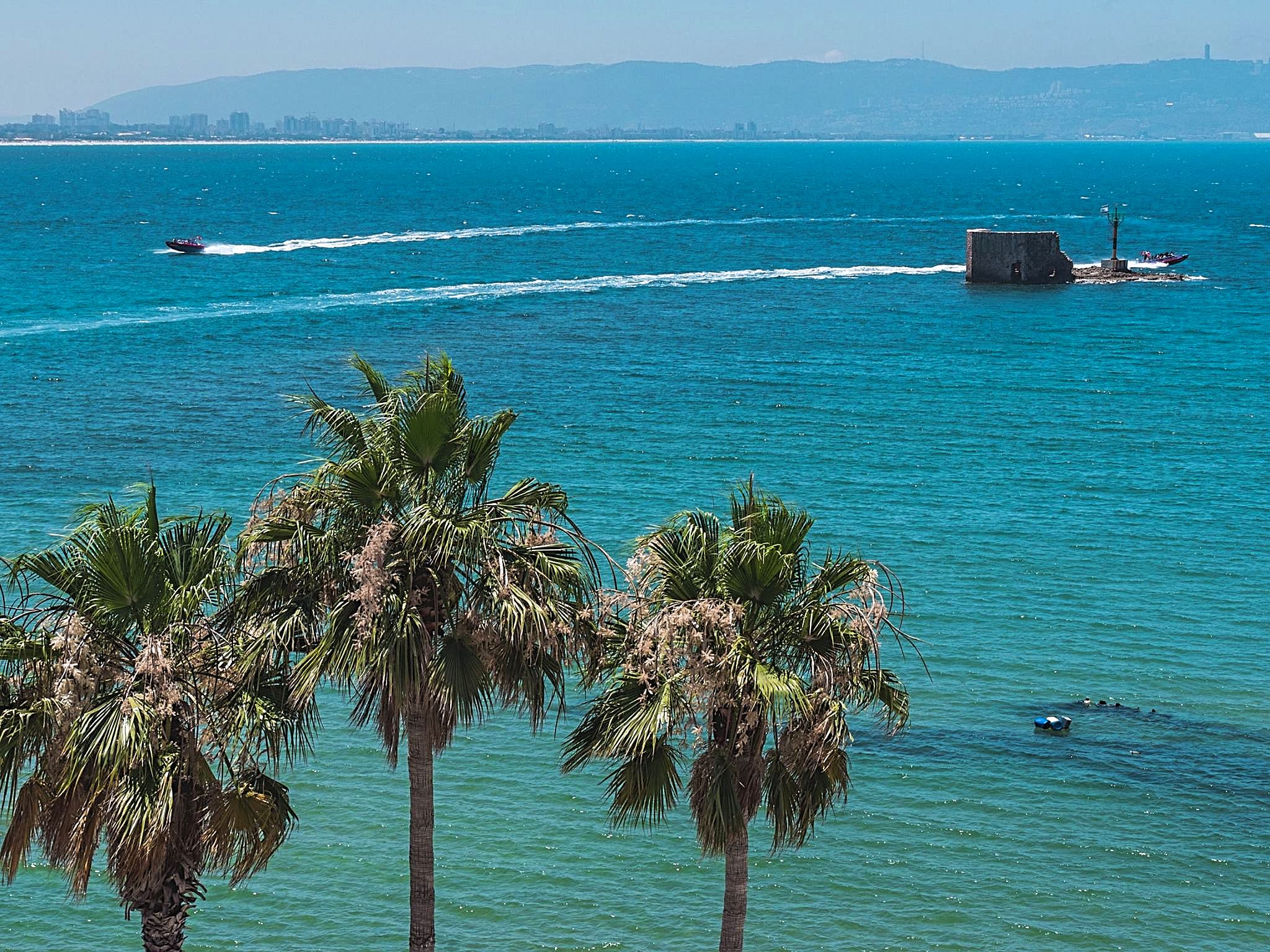
Acre beachfront. Photo credit: © Dmitry Mishin
Some of it, of course, comes from fear of the political situation in the region and, for sure, one can’t deny that Israel is located in the Middle East. However, Israel is also a highly developed country, with outstanding infrastructure, healthcare, and tourist facilities, and nearly everyone here speaks good (if not fluent) English. Not to mention the thousands of citizens who also manage well in Russian, French, and Spanish. Throw in the wonderful Mediterranean sea, fantastic Israeli beaches, fabulous food, and friendly locals, and what’s not to like?
Personal Safety vs. Fear of Conflict
The fact is that, for tourists, Israel is an incredibly safe country to visit. You can easily walk the streets of Tel Aviv or Jerusalem at 2 am with complete confidence (in Tel Aviv, there’ll be a fair few cafes still open) and incidents of petty theft and harm to the person are rare. So where does the fear of visiting Israel come from? To an extent, the international media, which from time to time creates an image of the country that is quite incongruous with the situation on the ground. There’s also groups such as BDS (‘Boycott, Divestment, Sanctions’) and other organizations that seek to portray Israel as an apartheid state, with oppression and violence at every turn.
The reality, however, is quite different, as many tourists see within days, if not hours, of flying in. As we have said before, Israel is extremely modern, not just by Middle East standards, but by world standards. It uses cutting-edge technology in everyday life, has English and French signs in every major tourist hotspot, and its locals, as a rule, are extremely friendly and hospitable (Israelis love to find out what people think of their country). It’s not uncommon for taxi drivers and barmen to ask if you have someone to eat Friday night dinner, or try and introduce your daughter to their eligible son! Welcome to the Levant…!
Nevertheless, putting aside all the above, let’s look at the two major reasons behind the fears some people have when considering traveling to Israel for the first time. Rather than downplaying them, let’s explore the facts on the ground and see if the perception matches reality. If you haven’t guessed, the two major fears people currently have concern COVID-19 and the political situation with the Palestinians in the West Bank and Gaza.
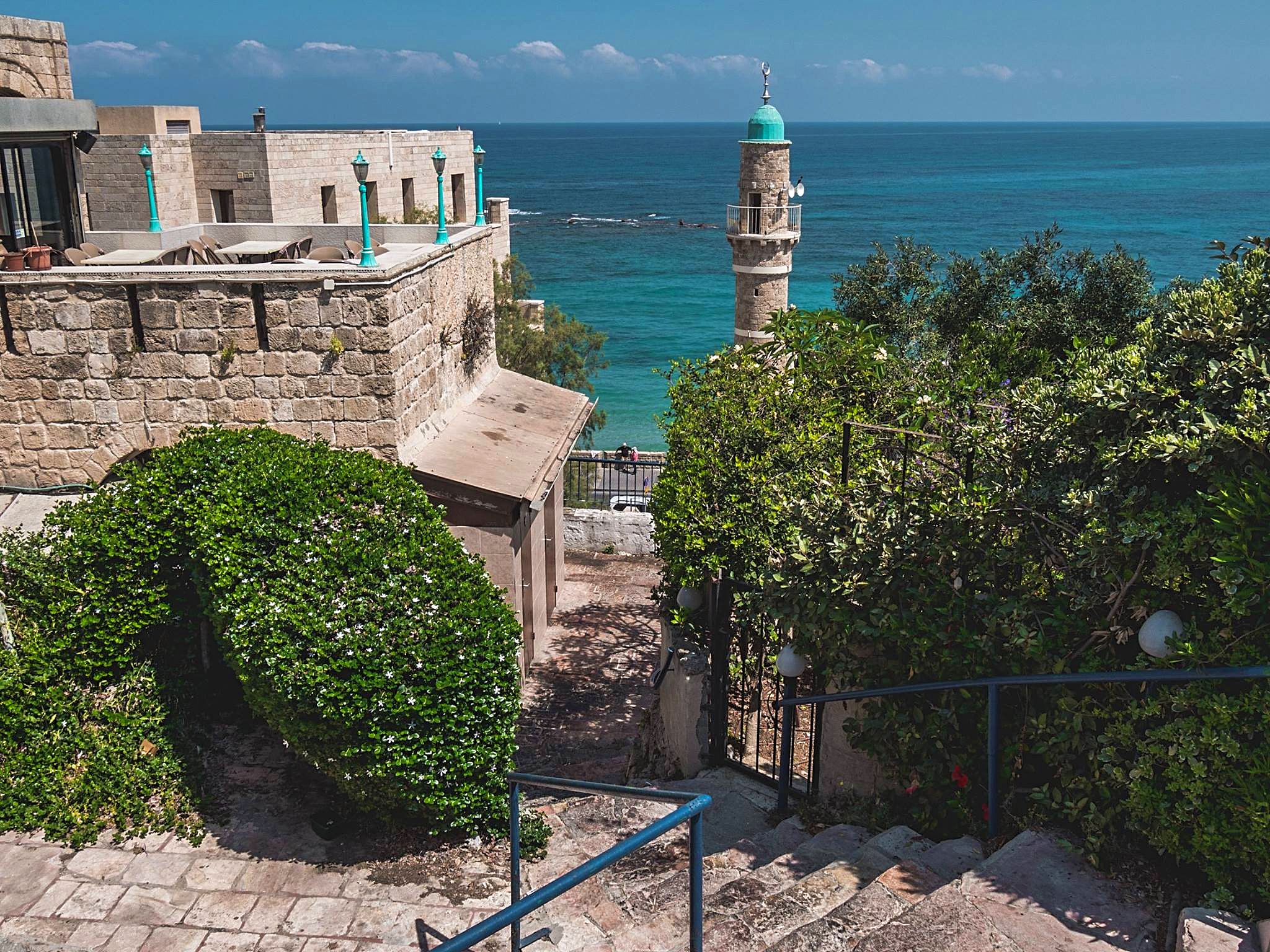
Old Jaffa seafront, Israel. Photo credit: © Dmitry Mishin
1. COVID-19
It is completely understandable to be fearful of Covid-19; after all, this is a virus that has brought the world to its knees and many countries are still suffering terribly. However, Israel is not one of them. On the contrary - Israel is the world leader when it comes to vaccinations - as early as January 2021, it had opened inoculation centers all over the country and was vaccinating thousands of people a day.
Now, with summer here, Israel is the envy of the world - it is the first country to have achieved herd immunity, masks are no longer mandatory, either in public or private, cafes, restaurants, and museums are once busier and Tel Aviv's beaches are full. Israel is most definitely a ‘green’ country and can’t wait to welcome you. Even better, because of its low infection rates, you will not generally be subject to quarantine in your home country, when you return from your holiday. Obviously, this is a fluid situation but, as of late June, the timeline for Israel’s reopening to tourists looks like this:
at the current moment (i.e. mid-June) most hotels in Israel have reopened and a small number of tourists (who have first-degree relatives in the country) are permitted to enter. From July 1st, 2021, individual tourists will be able to enter Israel, subject to certain provisions. This includes visitors who are fully vaccinated - you will need to show a negative PCR test, a vaccination certificate, and undertake a PCR test on arrival at Ben Gurion airport.
Israel will open initially to tourists from countries where governments have signed reciprocal agreements. The list is constantly being updated but is expected to include the USA, UK, and all EU countries. Other states will soon be applying for reciprocity. At the same time, day trips across the country will resume. If for any reason, a member of the group needs medical attention, the hospitals in Israel are some of the best in the world, so you need not fear. To check the latest COVID-19 restrictions in Israel read this article.
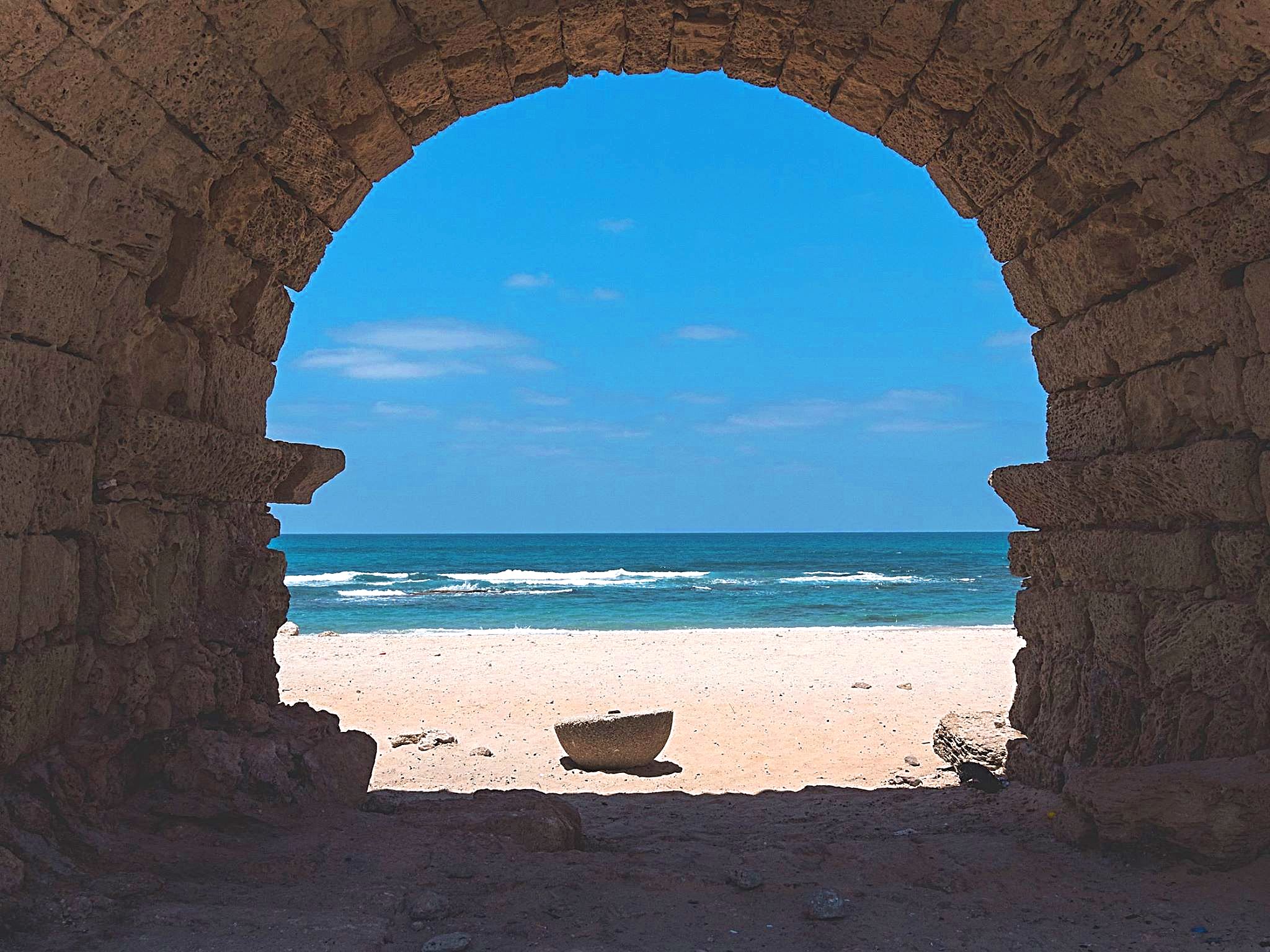
Caesarea Aqueduct Beach. Photo credit: © Dmitry Mishin
2. The Arab-Israeli Conflict
No one would deny that the political situation in this region is rather complicated and, unfortunately, will probably not be solved any time soon. However, as with many ‘troubled’ regions of the world, that does not mean that it is unsafe to visit as a tourist - rather it means simply using your common sense and exercising a little more caution than you normally would.
At this point, most foreign embassies advise that their citizens do not travel to the West Bank. However, as tensions flare up and then abate, the situation can change and in more ‘peaceful’ moments tour companies like ours do offer guided trips to the West Bank to some interesting and important sites there (Bethlehem and Jericho tours). Once in Israel, check with your guide who can give you the lie of the land and advise you as to your safety. The political situation is explained in greater detail in this link.
Why It’s Secure to Travel in Israel
Now for the good news - it is safe to travel in Israel. The upshot of having to spend over seventy years dealing with terror means that there is a lot of security in public places. Let’s start with Ben Gurion Airport - it’s easily the most well-guarded airport in the world, with (strict protocols in place that most tourists don’t even notice) to ensure your safety.
The same goes for bus and train stations, shopping malls, museums, and top tourist sites in Israel such as the Old City of Jerusalem - you may sometimes be asked to open your bag - so a guard can inspect its contents - before going inside, but this is the extent of the inconvenience you will suffer. In daily life, you’ll be surprised at just how ‘normal’ things are - Israelis love their free time and enjoy nothing more than a swim at the beach or a cup of coffee with friends in their local cafe.
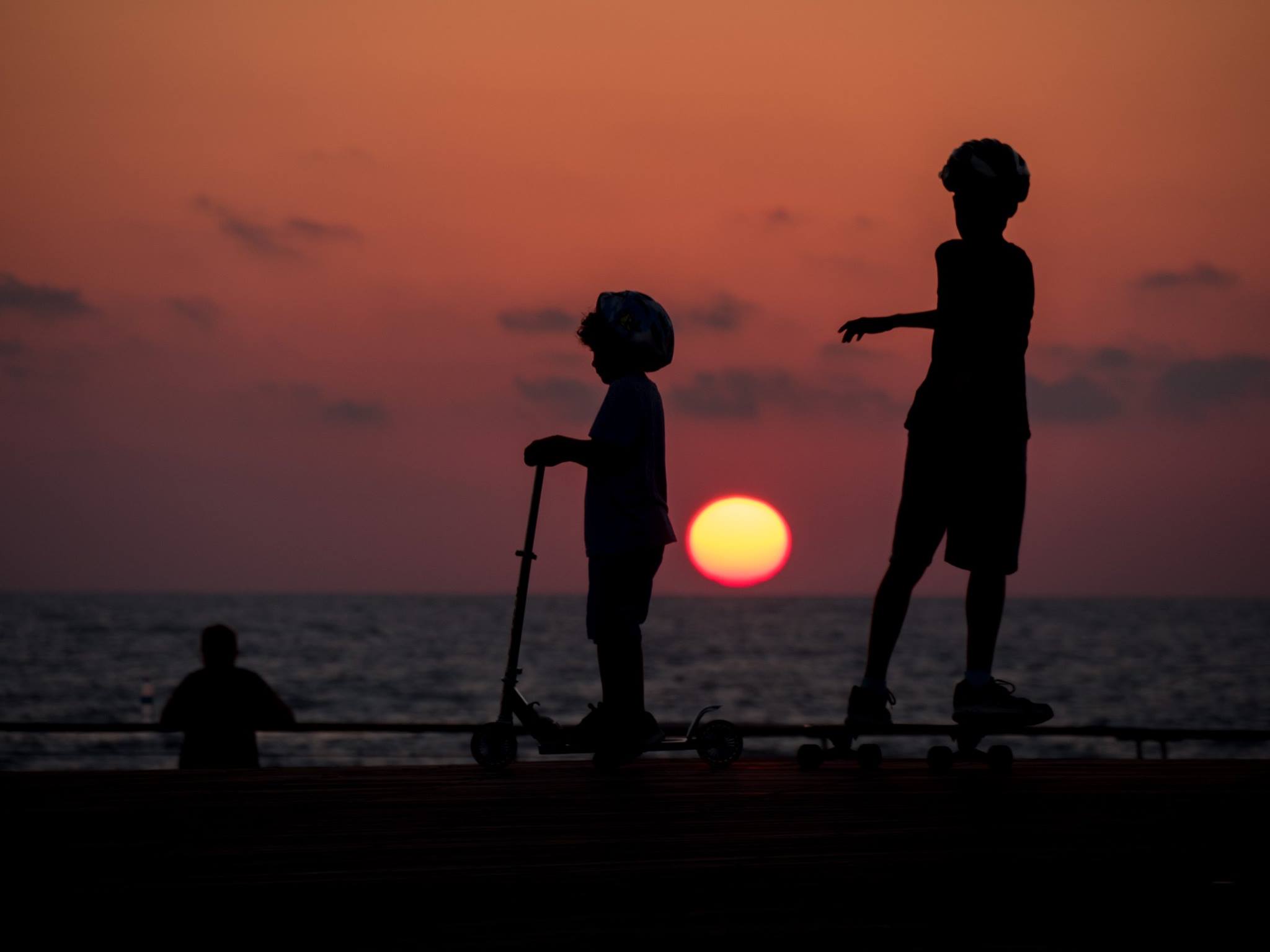
Sunset in Tel Aviv, Old Port area. Photo credit: © Dmitry Mishin
Something else you will notice is young soldiers - of both sexes! That’s because Israel has compulsory national service which begins at the age of 18. Men have to serve three years and women two and their jobs are varied - from combat units and cyber security to clerks in offices, platoon cooks, and paramedics.
On Sunday mornings, the buses can be really full - that’s because soldiers who’ve had weekend leave will be returning to their bases. Most of them speak excellent English and if you do end up sitting next to one in a cafe or on public transport, don’t be surprised if you end up chatting to them.
Take Responsibility for Your Own Safety
For the most part, as we’ve said, Israel is extremely safe but we can’t emphasize enough that you should take responsibility for your own safety - by using basic common sense and occasionally exercising a little causation in what you think could end up becoming a tense situation. As with anywhere in the world, you travel, there’s no guarantee that nothing bad will ever happen but there are always steps you can take to minimize danger and unnecessary risks.
Here are a few dos and don'ts we recommend following in Israel, to make things as easy as possible for you:
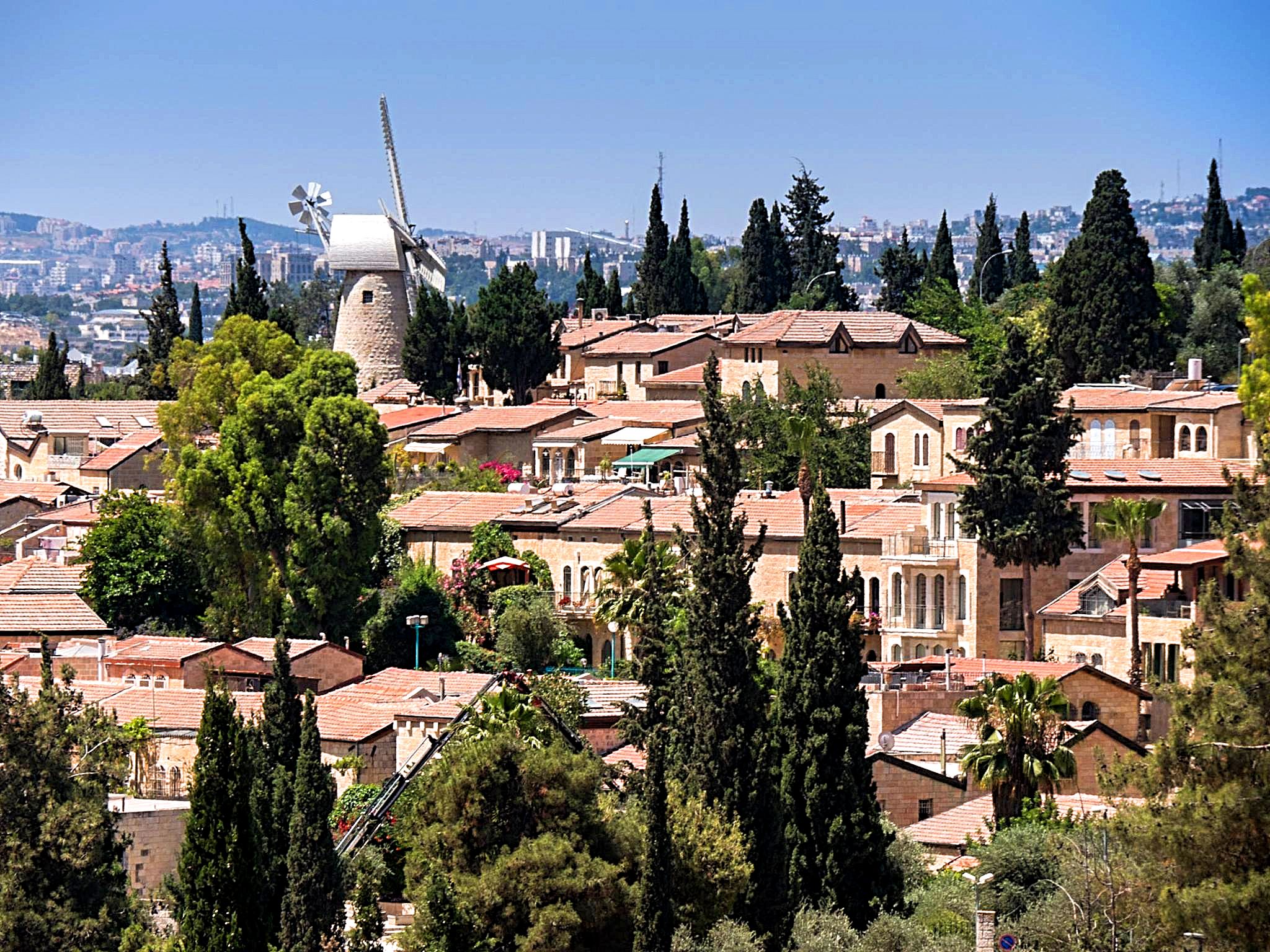
Montefiore Windmill in Mishkenot Sha’ananim neighborhood, Jerusalem. Photo credit: © Dmitry Mishin
List of Dos:
1. Listen to your tour guide - they’re knowledgeable and experienced and, as locals, will have their finger on the pulse at all times. It’s also their job to keep you informed, so don’t feel embarrassed to ask as many questions as you want!
2. Stay up to date with the news - situations unfold rapidly in this part of the world and if you’re ‘in the know’ that can be very helpful. There are also Israeli radio and TV stations that broadcast in English (i24 and YNet), as well as favorites like CNN and the BBC.
3. Distance yourself from provocative or violent demonstrations, should you run into them. Don’t stop for a photo-op to show to friends back home - you might find yourself in the thick of a crowd you then can’t extricate yourself from.
List of Don’ts:
1. Never try to cross a border where it is not allowed. There will usually be signs to warn you and guards in the area but, if in doubt, err on the side of caution. Whilst it might seem fun to break the rules for a Facebook or Instagram post, you could really end up in a lot of trouble with the Jordanian or Palestinian authorities. Remember you are a guest in another country and aim to be responsible for your own safety.
2. Don’t travel to the West Bank alone. If things are quiet, you can take a day tour to Bethlehem and Jericho with a tour company that has years of experience and local connections, which always helps. There are day tours and excursions operating both to Bethlehem and Jericho and they ensure you’ll have a seamless transition from Israel to the area controlled by the Palestinian Authority.

Bethlehem rooftop view. Photo credit: © Shutterstock
If you travel alone, not only will you have to deal with checkpoints (where, as an individual, you may have to queue for a long time) but, if worse comes to worst, and trouble breaks out, you may find yourself unable to return to Israel, especially if it's over a religious holiday (when the border between Israel and the West Bank sometimes shut for security reasons).3. Choose a trusty Israeli tour operator. This is imperative. Do plenty of research, find out how long they’ve been in business, and read their reviews. Check their credentials and reviews on TripAdvisor and don’t be afraid to call them and ask questions before you book - a good tour operator won’t have anything to hide.
Beaches, Mountains, Deserts and History - Israel Has It All
To sum up, then, we can say in no uncertain terms that first-time visitors who join tours in Israel might have a few nerves beforehand but in no time (and we’re talking hours, not days) come to realize that Israel isn’t just a safe destination but an amazing one too. With beaches, mountains, deserts, religious sites, places of archaeological and historical significance, and endless family-friendly attractions, there’s not much to complain about.
Add to that the growing ‘food’ culture, the easy beat of Tel Aviv, the gravitas of holy Jerusalem, diving in Eilat, skiing in the Golan Heights, kayaking down the Jordan River, or drinking wine in some very fine Galilee vineyards, trust us when we tell you you’re going to have a holiday you’ll never forget. So now you know, what are you waiting for? Get planning your vacation in Israel and packing because it is open for business - and ready to greet you with open arms.
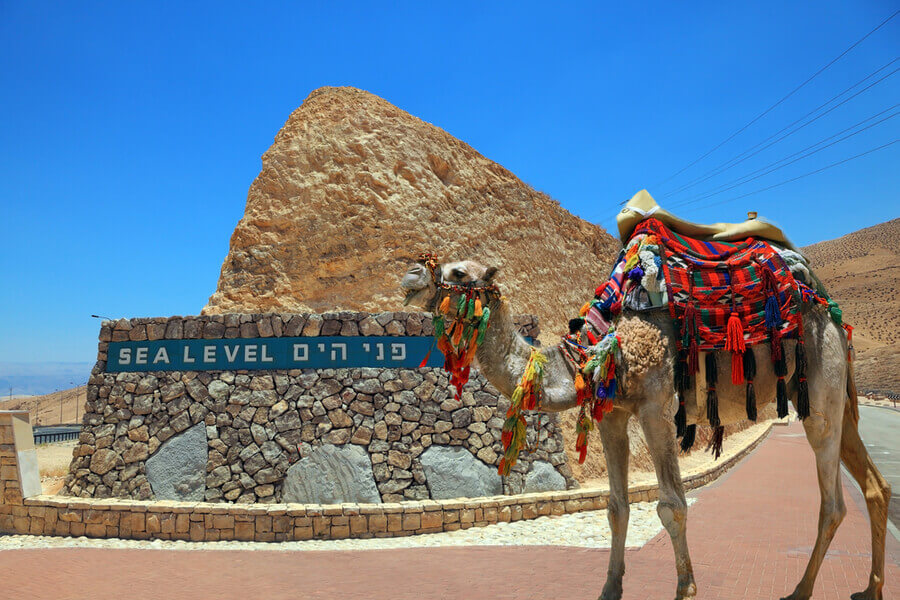
Camel riding at the sign indicating sea level near the Dead Sea, Israel. Photo credit: © Shutterstock
 Login / Register
Login / Register
 Contact Us
Contact Us
 Certificate of Excellence
Certificate of Excellence Guaranteed Departure
Guaranteed Departure Low Prices Guaranteed
Low Prices Guaranteed 24/7 Support
24/7 Support




